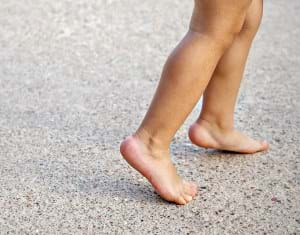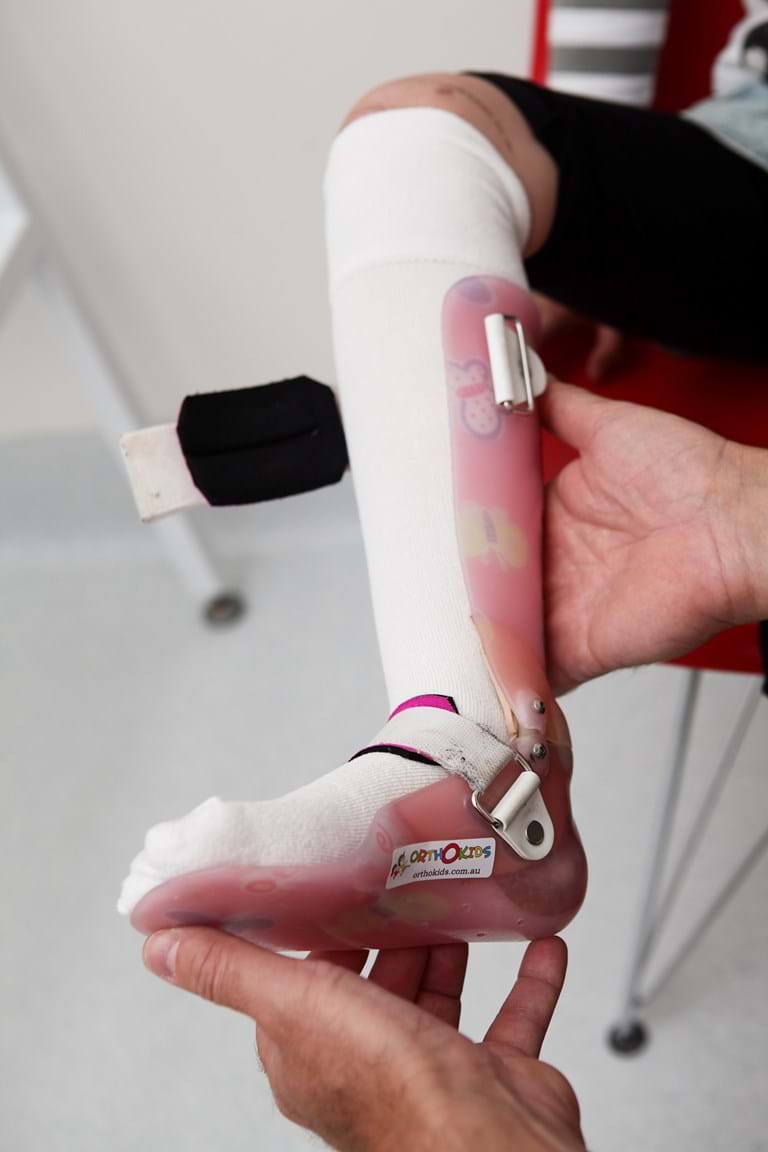Toe Walking - Does your child's toe walking concern you?
Toe walking is very commonly seen in toddlers who are learning to walk. In the majority of cases, the toe walking slowly reduces and is of no concern.
If your child is a constant toe walker, it is always a good idea to make an appointment with your GP, paediatrician or paediatric physiotherapist for assessment.
In most cases, toe walking is a habitual issue, called Idiopathic toe walking as it has no known cause.
It becomes a problem if the calf muscles begin to shorten, reducing the ankle movement. This may cause long term damage to the foot and ankle due to the abnormal forces acting on them.
There is also a chance that as a child’s weight increases with growth, the middle of the foot will collapse, creating an abnormal foot, which can become painful.
-
Surrey Hills, North Melbourne or Frankston Clinic
-
Knowledgeable, approachable clinicians
This is often our first option for newly diagnosed toe walkers.
Your Orthotist will custom fit a rigid carbon fibre footplate into your shoe, preferably a basketball boot or high top boot which has extra room for the footplate.
The carbon fibre footplate prevents the toes from bending, making it much harder to toe walk.
Foot orthoses can be used in conjunction with carbon fibre footplates if the arch of the foot is collapsing.
In very persistent cases of toe walking, Ankle Foot Orthoses (AFOs) may be required.
Hinged AFOs are the most commonly used design for toe walkers as they allow movement of the foot up, but prevent the foot from plantarflexing or ‘pointing’. It is very difficult to toe-walk in AFOs.
This is the most effective treatment option for persistent toe walking.
- Short Achilles Tendon:Some children have a congenitally short calf muscle or Achilles tendon, reducing their ability to get the heel to the ground.
- Cerebral Palsy:Toe walking is common in young children with cerebral palsy due to high tone of the calf muscles.
- Autism: A proportion of children with autism are toe-walkers. The reasons for this are not well known but are most likely due to problems with the control of sensory feedback.
- Muscular Dystrophy: Toe walking is common in children with muscular dystrophy.
Keep in mind that these conditions are relatively rare and if you are concerned about your child's toe walking, please contact your GP or Paediatrician.
To make an appointment contact Orthokids on:
(03) 9836 4480



